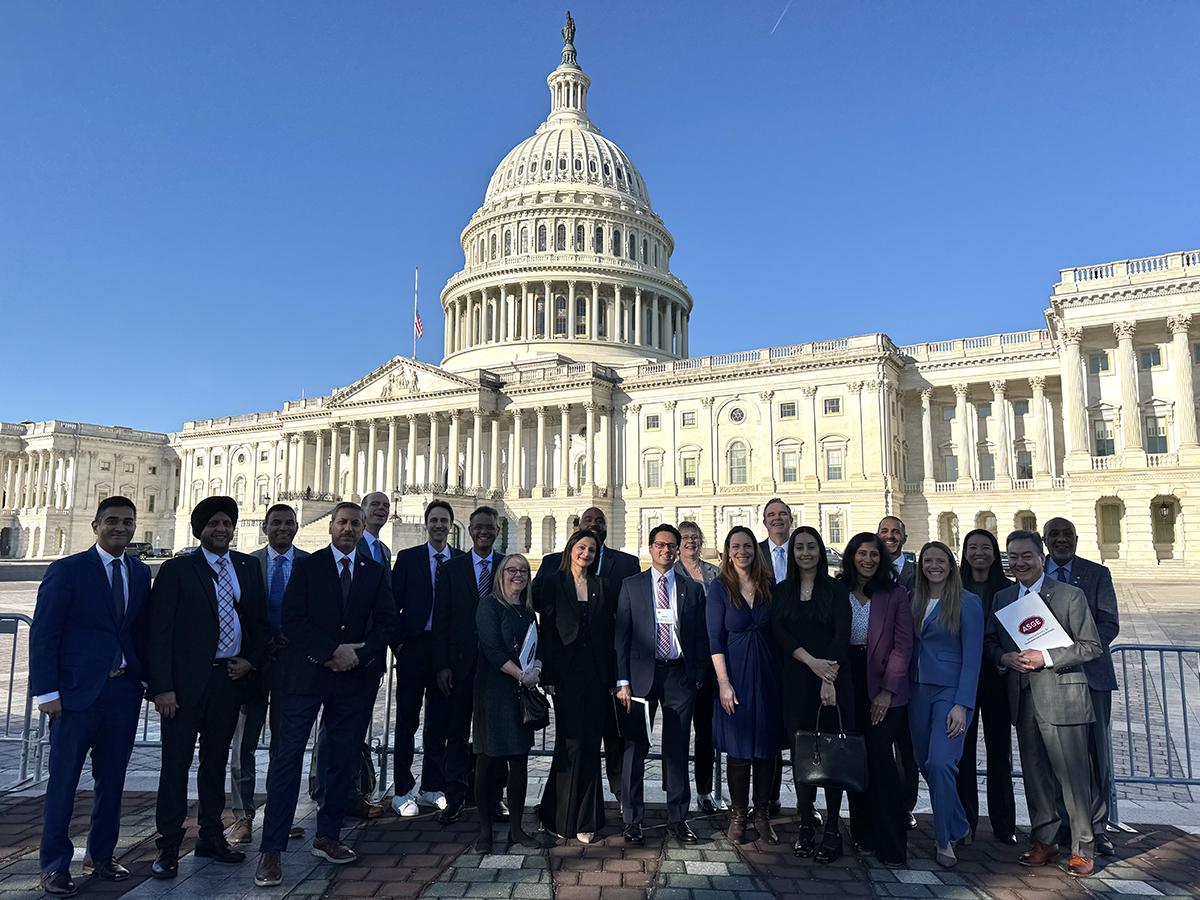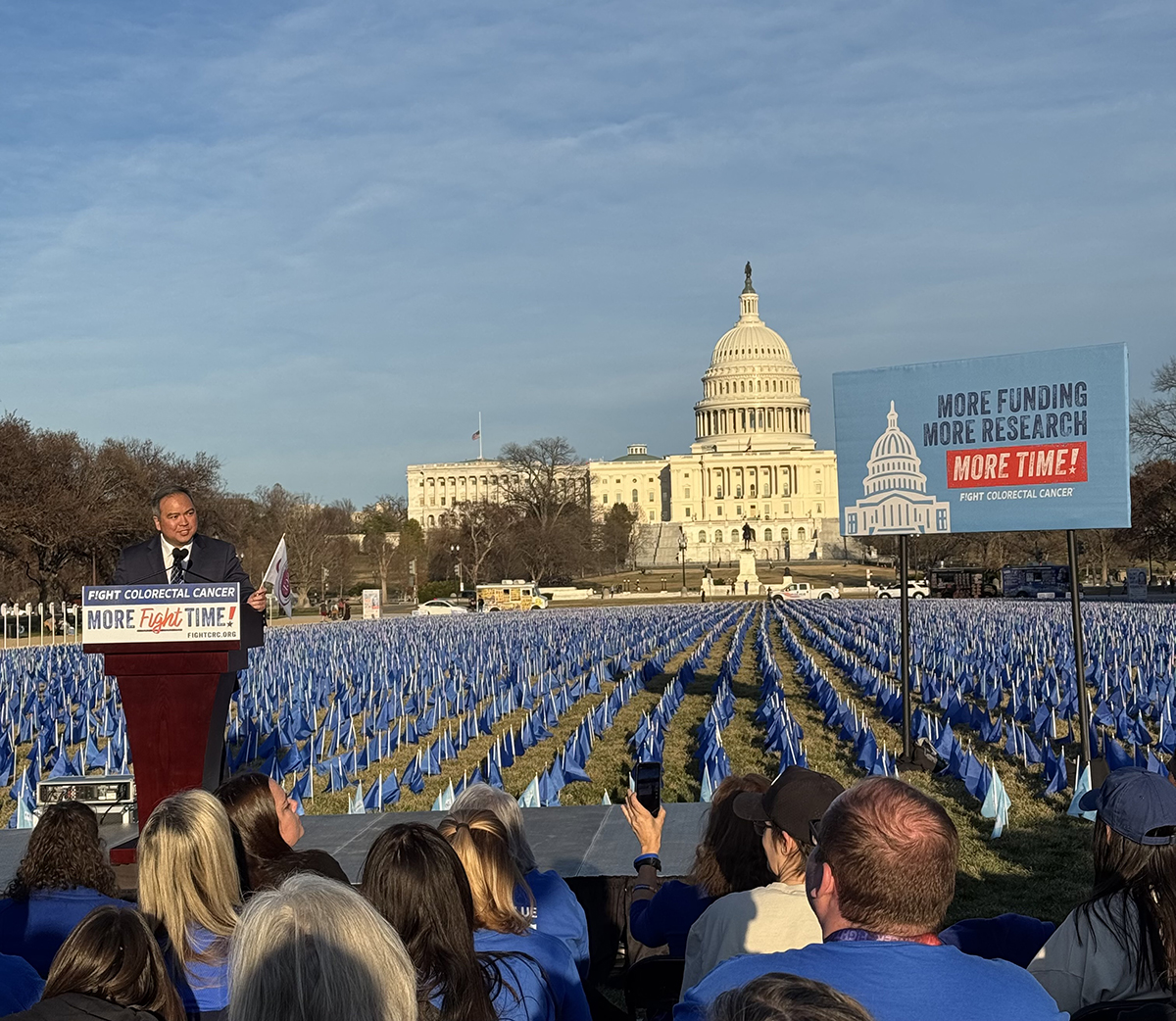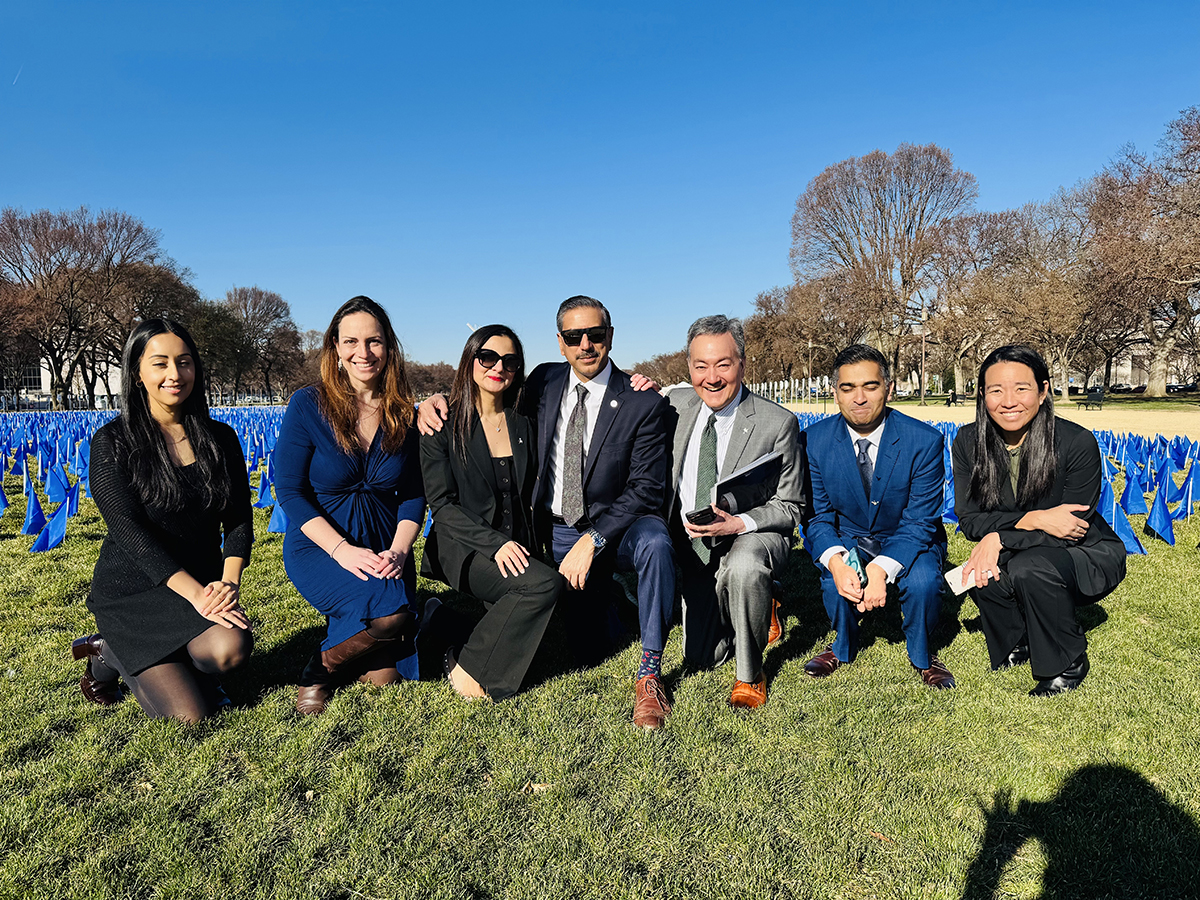Our community is united in the fight against colorectal cancer 365 days a year, with March being a special time to amplify our collective voice at the national, state and local levels to raise awareness that colorectal cancer is a preventable and treatable disease when detected in time.
ASGE on The Hill

On March 11, your colleagues on the ASGE Health & Public Policy, Reimbursement and Practice Operations committees (pictured above) visited congressional offices to educate lawmakers on the unique care provided by gastroenterologists to our patients, who today face some of the most common, costly and consequential diseases, as well as the significant role endoscopy procedures play in the prevention, diagnosis and management of digestive diseases, including many gastrointestinal cancers. Among the issues they addressed as impacting gastroenterologists and the patients they serve:
- Medicare Physician Payment Cut: ASGE is calling on Congress to pass legislation to reverse the 2.8% Medicare physician payment cut that took effect on January 1, 2025, following the release of the Calendar Year 2025 Medicare Physician Fee Schedule Final Rule. This pay cut is compounded by the absence of a Medicare physician payment inflationary update despite a projected rise of 3.5% in the Medicare Economic Index. Physicians’ Medicare reimbursement has now been reduced by 33% since 2001 when adjusted for inflation in practice costs. Congress can help by supporting the bipartisan Medicare Patient Access and Practice Stabilization Act of 2025 (H.R. 879).
- Prior Authorization and Restoring Timely Access to Patient Care: Prior authorization continues to be a significant contributor to physician burnout. With more than half (54%) of the Medicare-eligible population enrolled in a Medicare Advantage plan, legislative and regulatory actions are urgently needed to reduce the burden of prior authorization on physician practices, as well as to improve patient outcomes by preventing delays in care and minimizing the number of patients who forego treatment altogether when it is denied or subjected to a lengthy appeal. With authorizations for prescribed therapeutics, such as biologics to treat gastrointestinal conditions, physicians must frequently prove a patient failed other therapies — sometimes including one or more drugs in the same category — before the requested therapy will be approved. Congress can help by passing the Improving Seniors’ Timely Access to Care Act.
Constituents in Action
While your colleagues spoke as a special interest in D.C., they will continue these relationships at home with their senators and House representatives as their constituents, making sure to connect with them during virtual town hall meetings, when they are visiting the local Rotary Club or Chamber of Commerce, and if visiting their hospitals. We encourage you to do the same. Legislative action takes our voices, our time and our continual commitment. Get to know your lawmakers and let them know your experience as a local constituent caring for patients in your community. Know their positions. Thank them when they support our work caring for patients with digestive disease, and let them know when issues, such as prior authorization, restrict access to care.
United in Blue in D.C.
 ASGE joined partners nationwide on March 10 to contribute to the power of speaking in one voice to promote colorectal cancer awareness. Edward Sun, MD, MBA, FASGE (pictured above) represented ASGE at a rally organized by FIGHT Colorectal Cancer in Washington, D.C. He spoke to the audience about the importance of colonoscopy in detecting and preventing cancer. He also gave an update on ASGE’s Colorectal Cancer Screening Project, highlighting the progress made in test sites in Georgia and Maryland. The project seeks to boost the follow-up colonoscopy rate for the underinsured and uninsured and to develop a playbook to promote screening across the U.S. View video.
ASGE joined partners nationwide on March 10 to contribute to the power of speaking in one voice to promote colorectal cancer awareness. Edward Sun, MD, MBA, FASGE (pictured above) represented ASGE at a rally organized by FIGHT Colorectal Cancer in Washington, D.C. He spoke to the audience about the importance of colonoscopy in detecting and preventing cancer. He also gave an update on ASGE’s Colorectal Cancer Screening Project, highlighting the progress made in test sites in Georgia and Maryland. The project seeks to boost the follow-up colonoscopy rate for the underinsured and uninsured and to develop a playbook to promote screening across the U.S. View video.

Members of the ASGE Health & Public Policy, Reimbursement and Practice Operations committees visited the United in Blue installation in Washington, DC. The installation consists of over 27,000 blue flags planted on the national mall, with each flag representing one person under age 50 projected to be diagnosed with CRC by 2030.